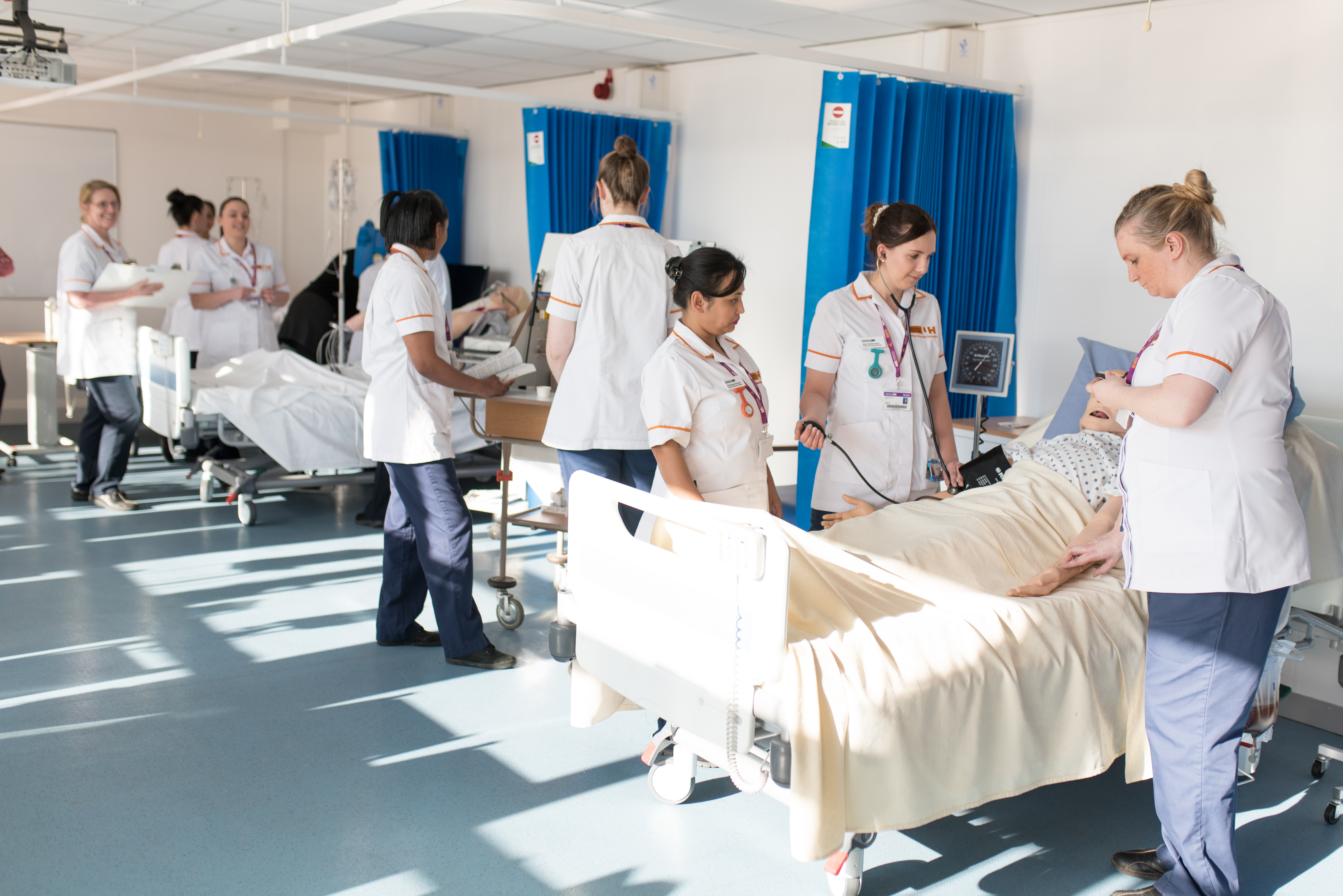Sign up for updates
Interested in studying at the University of Hertfordshire and want to sign up to our mailing list to learn more about our facilities, living in the UK and student life? Use the form below and our team will also keep you informed of key updates such as events near you, applications opening and more!
Nursing Associate Degree Apprenticeship
About the course
Apprenticeship Standard: Nursing Associate
Final Award: FdSc Health Care Practice
The Nursing Associate is a new nursing occupation, introduced into the health and care workforce to bridge the gap between health and care assistants and registered nurses. This programme functions as both a stand-alone, as well as a progression route into the Registered Nurse role.
Nursing Associate is a highly trained support role to deliver effective, safe and responsive nursing care in and across a wide range of health and care settings. Associates will work as part of the nursing team supporting registered nurses and delivering and monitoring care. They will have gained a breadth of knowledge and a flexible, portable skill set to enable them to serve local health populations covering pre-life to the end of life.
The nursing associate works within all aspects of the nursing process, taking account of the perspectives and pathways of individuals, their families and carers, providing holistic care and supporting the registered nurse in the assessment, planning, delivery and evaluation of care.
Why choose this course?
- Nursing Associates will have the ability to provide quality patient care to people of all ages in a wide variety of health and social care settings
- Students on our programme will benefit from a variety of placement experiences which will enhance their skills set.
- Access to simulation facilities at the University as part of your learning will, enhance your real-world experience.
What will I study?
Nursing Associates are expected to attend University one day per week for 45 weeks of the year, and they also have three six-eight week placement blocks during the academic year.
We’ll teach you the skills and knowledge you’ll need to become a safe, accountable and proficient nursing associate. From technical skills like taking blood pressure and an ECG to learning how to effectively communicate with patients, families and carers. You’ll learn how to prioritise and manage your own case load to meet patient’s needs safely and effectively. Every step of the way, you’ll benefit from constructive professional feedback. By learning how to evaluate your own delivery of care, you’ll become an extremely knowledgeable, reflective and self-aware practitioner.
Together, we’ll explore theories and current research, which you’ll use to provide evidence-based care. We’ll teach you about all areas of care such as hygiene, nutrition and how to prevent infection. You’ll gain an understanding of how to deal effectively with safeguarding issues relating to vulnerable adults or children.
This programme is delivered part-time over a course of 24 months. We offer a blended learning approach, which includes lectures, seminars, workshops, group work and clinical placements. We’ll encourage you to undertake independent study to consolidate your learning. There’s a range of assessment methods too, including essay assignments, simulated practical assignments, scenario-based presentations and professional discussions. This inspired approach to teaching and assessment, gives you a stimulating learning environment to thrive in.
Professional Accreditations
The Nursing Associate role is a professional role regulated by the professional and regulatory body, the Nursing and Midwifery Council (NMC).
Careers
On successful completion of the programme of study the Nursing Associate will be eligible to join the Nursing and Midwifery Council register and there is an opportunity for progress onto the BSc in Nursing degree and apply for any field.
